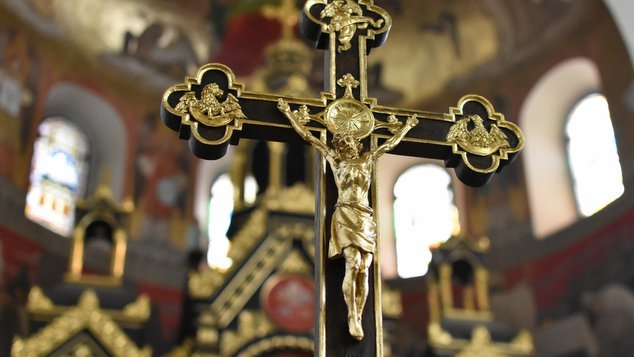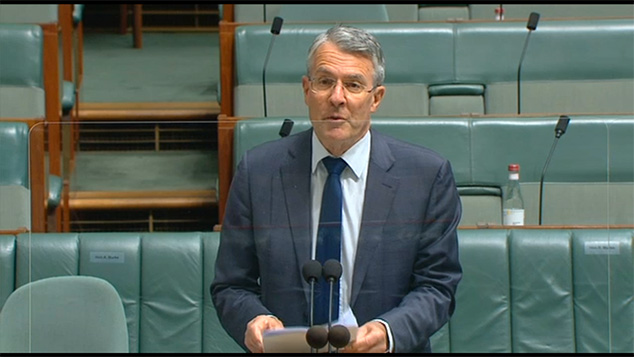
The Religious Discrimination bill which Prime Minister Scott Morrison pledged at the 2019 election has progressed at snail’s pace through the parliament this week.
After the PM introduced the bill last week it wasn’t brought on for debate until Thursday afternoon, and the discussion lasted less than an hour before the house moved on to other business.
At the same time the Senate ordered a second inquiry into the bill, which will run simultaneously to the investigation being conducted by the Joint Parliamentary Committee on Human Rights.
On Thursday the Senate voted to refer the bill to it’s Legal and Constitutional Affairs Committee, which will now a hold separate concurrent inquiry. Both inquiries will hand down their reports at the same time, 4th February 2022.
The Human Rights Committee has outlined it will only host three public sessions in Canberra, and will only accept public submissions from organisations or academics. They will also only be looking at the Religious Discrimination bill, not how it intersects with other existing legislation.
Whether the second inquiry will be cast a wider net and travel to other parts of the country to hold public sessions is yet to be known.
Second Reading of the Religious Discrimination bill proceeds slowly
Debate on the bill began in the House of Representatives on Thursday with Shadow Attorney-General Mark Dreyfus outlining that the opposition was supportive of the general idea of protecting religious belief under anti-discrimination laws, but highlighted the current legislation was problematic.
The Shadow Attorney-General said the proposal that religious belief should be included in federal anti-discrimination laws was a move welcomed by the Labor party. Dreyfus noted that most state laws already had a provision.
“The idea that it should be unlawful to discriminate against someone in employment, the provision of services, or in other areas of public life on the basis of a person’s religious belief or activity is not, or at least should not be, controversial. Indeed it is already unlawful under the anti-discrimination laws in most state’s and territories.” Dreyfus said.
“The provision of these bills is complex, especially when it comes to their interaction with other anti-discrimination laws, including state anti-discrimination laws.” Dreyfus said, and said it worrying that it was not clear how the proposed laws would operate in practice.
“Even the Prime Minister and the Assistant Attorney-General can not agree on how the bill would work in practice, with each offering different and contradictory views in the way in which particular provisions would operate. If the Prime Minister cannot even agree with his own ministers on the effects of aspects of these bills, it is clearly inappropriate for the Prime Minister to bring these bills on for a vote in the house today.”
Mark Dreyfus said Labor would not adopt a final position on the legislation until the findings of the Joint Parliamentary Committee on Human Rights released their report, and the party had consulted with the public.
“It has been disappointing to hear the Attorney-General characterize that sensible, responsible position, of waiting for a parliamentary committee to report, which is of course consistent with the usual practice in relation to the vast majority of complex bills introduced to this parliament, as some kind of delaying tactic.” Dreyfus said.
Outlining the bills long journey from the introduction of marriage equality, through the Ruddock Review and it’s various drafts, Dreyfus said the Prime Minister had spoken about working together with the opposition and the crossbench to create effective legislation, but had then developed the latest draft without any meaningful consultation.
Following his speech Deputy Prime Minister Barnaby Joyce shared his views on the discrimination legislation drawing on his own Christian beliefs. The Nationals leader spoke about how religion had brought order and equality to the world and been the driving force behind democracy, but said faith was no under threat as people attempted to bring in other belief structures.
Joyce said people needed to look no further than the example of Tasmanian Archbishop Julian Porteous to see the need for the new legislation.
“The fact that a Catholic Prelate was going to face legal sanction by a simple profession of faith in a document is evidence of the state brutally corralling and neutering to usurp the role of faith in the public square.” Joyce said.
Joyce said he would be supporting the bill because the need for religious discrimination protection was long overdue.
With just two speakers adding their thoughts on the bill to those of the Prime Minister, debate was adjourned as the house moved on to other business. Thursday was the final sitting day of the parliament for 2021.
When parliament returns in 2022 there are just seven sitting days in February, and then a further three days in March which have already been earmarked for a budget. With Prime Minister Scott Morrison needing to announce an election before May it’s unlikely that the parliament will sit again before August 2022.
The slow progress of the bill means there is decreasing chances it will become law in this term of parliament.
Graeme Watson
You can support our work by subscribing to our Patreon
or contributing to our GoFundMe campaign.






